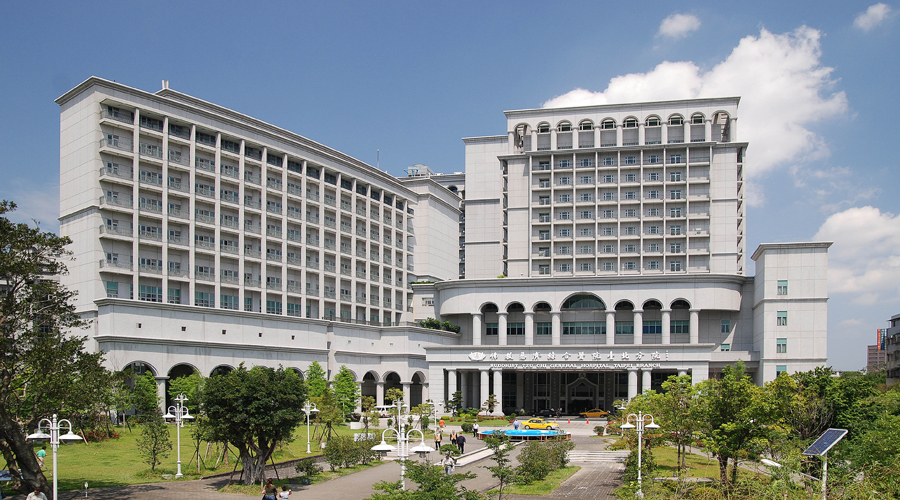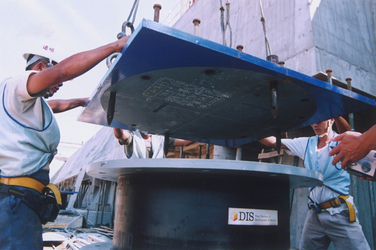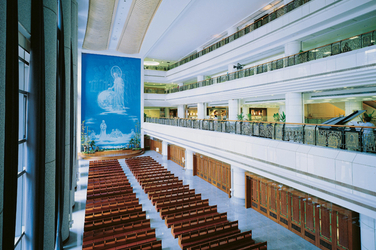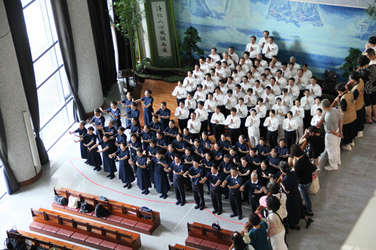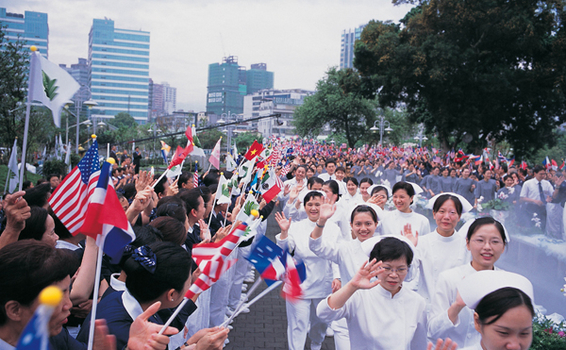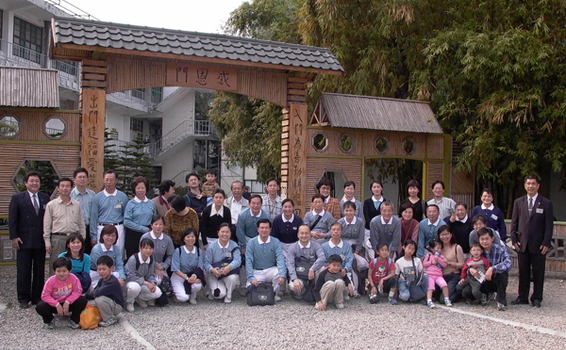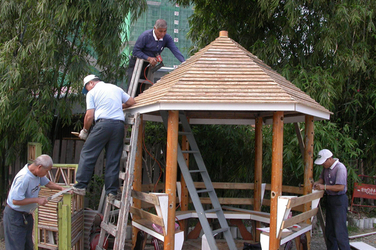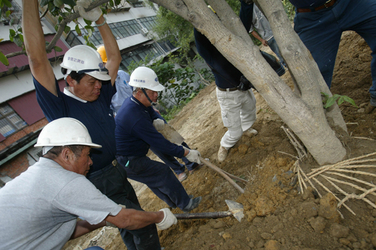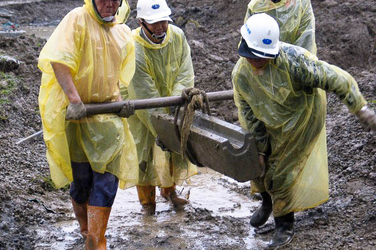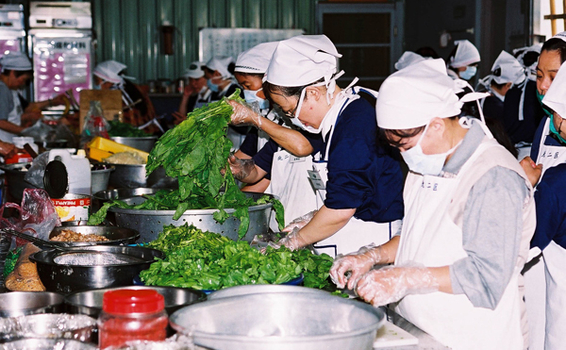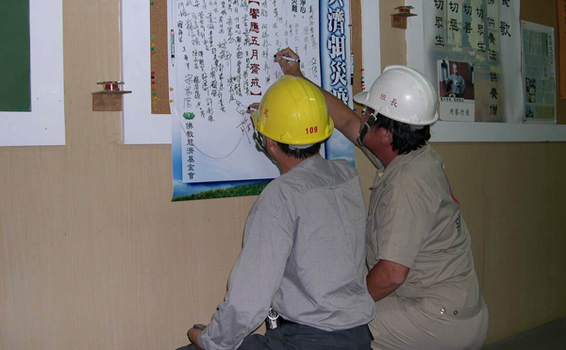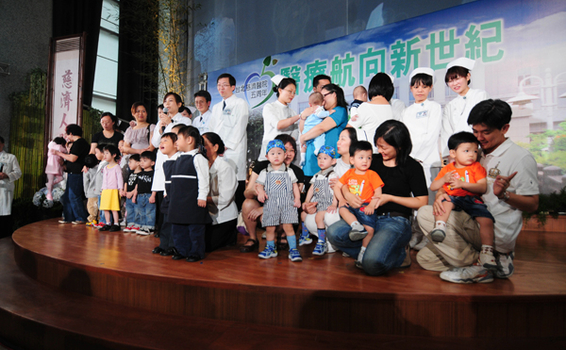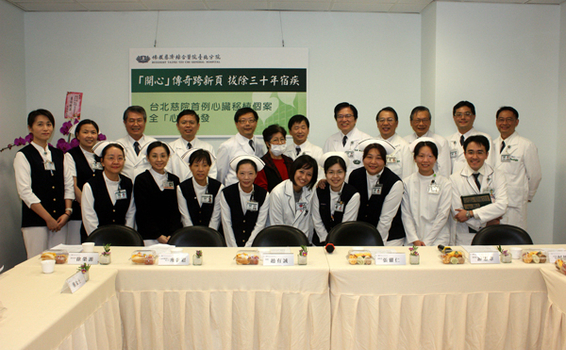Taipei Tzu Chi Hospital
Excellence in Medical culture and Professionalism
Taipei Tzu Chi Hospital is situated at Xindian, New Taipei City. When examining the location distributions of medical institutions in the Taipei-Keelung metropolitan area, it is not hard to notice that majority of it centralizes in Taipei City, areas south and east of New Taipei City, like Pinglin, Shiding, Shenkeng, Wulai, Xindian, Jingmei, Zhonghe, Yonghe, Xianxia and etc., had no medical institutions at the level of medical centers. Critical patients in these regions had to be transferred to Taipei City through traffic congestions. Since Tzu Chi volunteers in northern Taipei had been contributing incessantly towards the Tzu Chi missions for many years, selecting New Taipei City as the location for Tzu Chi Medical Mission, servicing the residents of Taipei Keelung metropolitan area, is the most practical reward to these dedicated contributors.
After the inauguration of Dalin Tzu Chi Hospital, Tzu Chi hospitals in the Taipei and Taichung metropolitan area also inaugurated respectively. These subsequent hospitals, situated in the metropolitan area where medical institutions are relatively scarce, are shouldered with the mission to propagate Tzu Chi’s unique medical culture in urban areas.
The Promise of a Thousand Years
In 1996, Tzu Chi commissioner Lin Ya-Mei in the northern district was looking for a suitable location in Taipei for a Jing-Si Hall, and by accident she discovered the land that would eventually become the present location of Taipei Tzu Chi Hospital. Mr. Hsu Tian-Pei, then CEO of Ming Da Industrial Co., gladly sold the land to Tzu Chi Foundation at a very low place, since the company was relocating its operation to China, and because he admires the compassion and actions of Master Cheng Yen.
While the preparation was underway, the volunteers in the northern district launched a series of activities and events to build a positive relationship with nearby residents. They swept the roadways clean, listened to the inquiries of the neighbors and responded promptly. However, the challenges had only begun. To start it off, the land was irregular in shape, and the alleyway width did not meet the regulation, leaving the purchasing of adjacent lands to increase the available land for construction as the only solution. Once assigned with the mission, Tzu Chi Volunteer Chen I-Ming and his wife Hsu Li-Yun sprung into action to locate the owners of every piece of adjacent lands and plead with them. For the following four years, they walked every inch of the land hundred times over, negotiating deals with over 30 land owners and their families, explaining to them the reasons behind the purchase. All the land owners eventually agreed to sell their land, and a third of them became honorary board members through donations. In 1999, Taipei Tzu Chi Hospital finally broke ground.
Only two months into construction, 921 earthquake devastated the entire nation. While occupied with disaster reliefs and school reconstructions, Tzu Chi Foundation ceased the hospital construction in search of a earthquake-proof solution. Vice CEO of Tzu Chi Ms. Lin Pi-Yu travelled to Japan and the United States to consult experts in the field, and invited Taiwanese professionals to discuss and design an earthquake-resistant architectural method. The final solution derived was to place an isolation pad under each pillar. After testing, on June 10, 2000, the construction restarted. However, the new method required additional 349 isolation pads, which translated to additional funding and delayed commencement. “There are two places that cannot fall in the wake of disasters: one is school, and another hospital. Schools are evacuation centers, and hospitals relief centers."
Bring Culture and Recycling to Workplace
During construction of the hospital, the entire Tzu Chi volunteer force mobilized to assist or facilitate the process.
The volunteers created a quality construction site culture, addressing the workers as bodhisattvas, providing hot meals on time, preparing ginger tea in winter and iced herbal tea in summer, driving away their hunger and thirst. When these construction workers feel fatigued or stressed from work, as soon as they see the volunteers traveling back and forth in the construction site preparing meals and drinks, they regain the strength to proceed.
The volunteers also first introduced vegetarian diet and etiquette, “Xinxushiyi”, to the construction workers. Diners must prepare their own cup, bowl, and chopsticks instead of using disposable utensils, and the dining hall only offers vegetarian dishes. They also promoted three HIGHS: HIGH safety, HIGH eco-friendly, HIGH quality; and three NOs: NO smoking, NO drinking, NO betel nuts. At first the regulations were faced with disgruntlement, but in time, the workers soon realized that good habit and quality environment had clear and positive effect on their mood, which in turn improved their family dynamics.
The pleasing natural scenery of Taipei Tzu Chi Hospital was the handiwork of 40,000 person-times of Tzu Chi volunteers who spent 7 months of their time since October 2004. After the establishment of the landscape volunteer coordination center, volunteers who applied would assemble at 7:30 am, with masks and safety helmets, and began a day’s work: gardening, repairing pipelines, cleaning environment, grouting and filling, paving interlocking bricks, dismantling fences, pulling nails, tying reinforced steels, and polishing terrazzo floors. Hundreds of volunteers working at the hospital every day, which also included elderlies who were more agile than youths and women in a group 4 or 5 carrying iron plates and reinforced steels, hoping to move the schedule ahead. As part of the eco-friendly effort, the soil that was dug were either used as rockery in garden decoration or in road pavement.
Safeguarding the Health of Community
The establishment of Taipei Tzu Chi Hospital is the accumulation of love and dedication worldwide. On May 1, 2005, a week before inauguration, a gratitude free clinic was held, providing services of over 24 departments, servicing 7,413 person-times over the course of 7 days. On May 8, Taipei Tzu Chi Hospital officially inaugurated, a decade since the search for land.
In terms of medical professionalism, every departments of the hospital provide highly technological clinical services, as well as minimally invasive surgery that alleviate pain and shortens recovery. On December 10, 2009, the hospital completed its first case of heart transplantation, offering new hope to patients with cardiological diseases. In an era of low birth rate, Taipei Tzu Chi Hospital that is mother- and infant-friendly has become the hospital with the highest delivery rate in New Taipei City.
The staff of the hospital stand firmly by their posts, passing through every evaluation, enable community hospital functions, integrating community volunteer networks, and safeguard the health of local residents; providing holistic medicine such as diagnosis, treatment, rehabilitation, parental education to children with physical or mental disabilities. The staff also followed the lead of TIMA members to remote regions during medical outreaches or overseas in disaster relief efforts. Many staff view Tzu Chi volunteers as their role model and applied for the training programs to become certified Tzu Chi commissioners or Faith Corps.
Walking on the premises of Taipei Tzu Chi Hospital and you will see the Tzu Chi volunteers in yellow vests in all corners of the hospital, receiving or escorting patients on and off shuttle buses, act as hospital guides at the lobby, traversing among departments to deliver records and specimens, listening to the anxieties and sorrows of patients and families, or sending desserts and juices to medical staff who missed their meals. In the hospital lobby, pianos, violins, and other musical instruments play melodically fill the space. During weekend afternoons, the lobby becomes a venue for gathering, where chamber orchestra formed by the doctors play, health educations by nursing staff, and sign language performance by volunteers, which bring smiles to the patients and their families. The harmonious integration of medical profession and culture attracted countless international guests, as well as providing opportunities for residents of the metropolitan to personally experience the warmth and love of Tzu Chi medicine.

